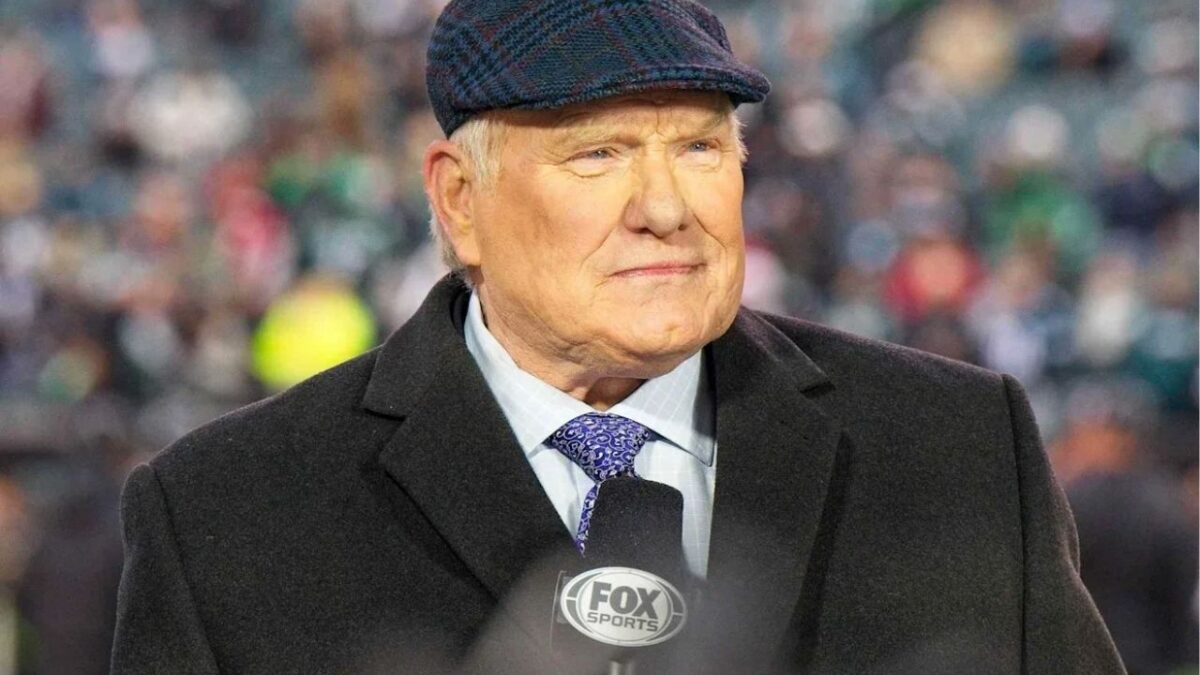Despite NFL Restrictions, George Kittle Finds Creative Way to Supply Smelling Salts
The NFL took a significant step this offseason after cameras caught Josh Allen being handed smelling salts following a head-slamming hit.

George Kittle (Image via ESPN)
🔍 Explore this post with:
The National Football League (NFL) placed a ban on team employees supplying ammonium inhalants to players, ahead of the beginning of the season. The league cited that the inhalants were able to mask the symptoms of a concussion in a memo sent in August.
The memo also reported that the FDA had issued a warning the previous year about the efficacy or safety of such smelling salts, despite them being legal and available for over-the-counter sale. While the league formally prohibited teams and staff from supplying ammonia capsules, it still allowed players to use them, provided they brought their own. This seemingly simple rule change created a unique loophole, one that San Francisco 49ers tight end George Kittle quickly and cleverly exploited.
Kittle initially bemoaned the decision but then embraced this loophole with both enthusiasm and ingenuity, effectively becoming the 49ers’ unofficial distributor. If the team can no longer provide ammonia capsules, Kittle took matters into his own hands. He began to bring his own smelling salts, and that too, in bulk.
Throughout the preseason, he packed enough smelling salts to support teammates who wanted a quick jolt of adrenaline. Despite his preparation, the defensive line tore through his stash twice. It also highlighted the prevalent usage of these items.
By turning himself into the primary contact for players seeking a boost, he effectively recreated the old distribution system with a twist. Instead of the team channel, they now have a player-run system. Now, how to do the distribution?
Kittle proposed filling an “old-school bucket of cheese balls” with smelling salts and simply leaving it on the sideline. Thinking about it, a large bucket sitting innocently on the sideline, coincidentally filled with ammonia capsules, does provide unrestricted access without violating policy language.
The problem with smelling salts and the NFL’s checkered history
The theory behind the smelling salts is the ammonia’s nature to release fumes when exposed to air. These fumes irritate the lining inside the nostrils, creating a sharp, stinging sensation. That irritation triggers an automatic inhalation reflex, forcing the person to take quick, deep breaths.

The sudden increase in breathing sends more oxygen to the brain and momentarily boosts alertness. This rapid jolt is why smelling salts can revive someone who has fainted or appears disoriented.
The idea that the players can stay alert and focused is the reason why it is commonly used in sports. Despite the rule change, there’s rampant usage of smelling salts. However, the substance has been removed from several sports due to one particular side effect associated with its usage. One such sport is boxing, where trainers once used them to jolt dazed fighters back to alertness between rounds.
The particular side effect in question is how inhaling these salts can hide or mask certain symptoms associated with concussions. The revelations by former athletes allude to the fact that it was used to return players to the field despite grave hits.
HOF quarterback Terry Bradshaw competed in a time when players were routinely given quick fixes to get them back on the field after concussions. He wrote in an article more than a decade ago about his experiences with the ammonium supplements.
In my Steelers days, if I got my bell rung, I’d sniff some smelling salts and head right back out. We all did.
While Kittle’s way to sneak in smelling salts might be a wild story to deliberate on, it should not be a chance to potentially diminish the importance of player safety. What happens that makes it dangerous? Smelling salts speed up breathing, which can mislead medical staff who rely on respiratory patterns to assess concussion severity, complicating immediate treatment.
Additionally due to ammonia’s irritating nature, an unconscious person may reflexively jerk their head or twist their neck, which is exactly what doctors want to avoid after a concussion. Such involuntary movements risks further brain injury.







